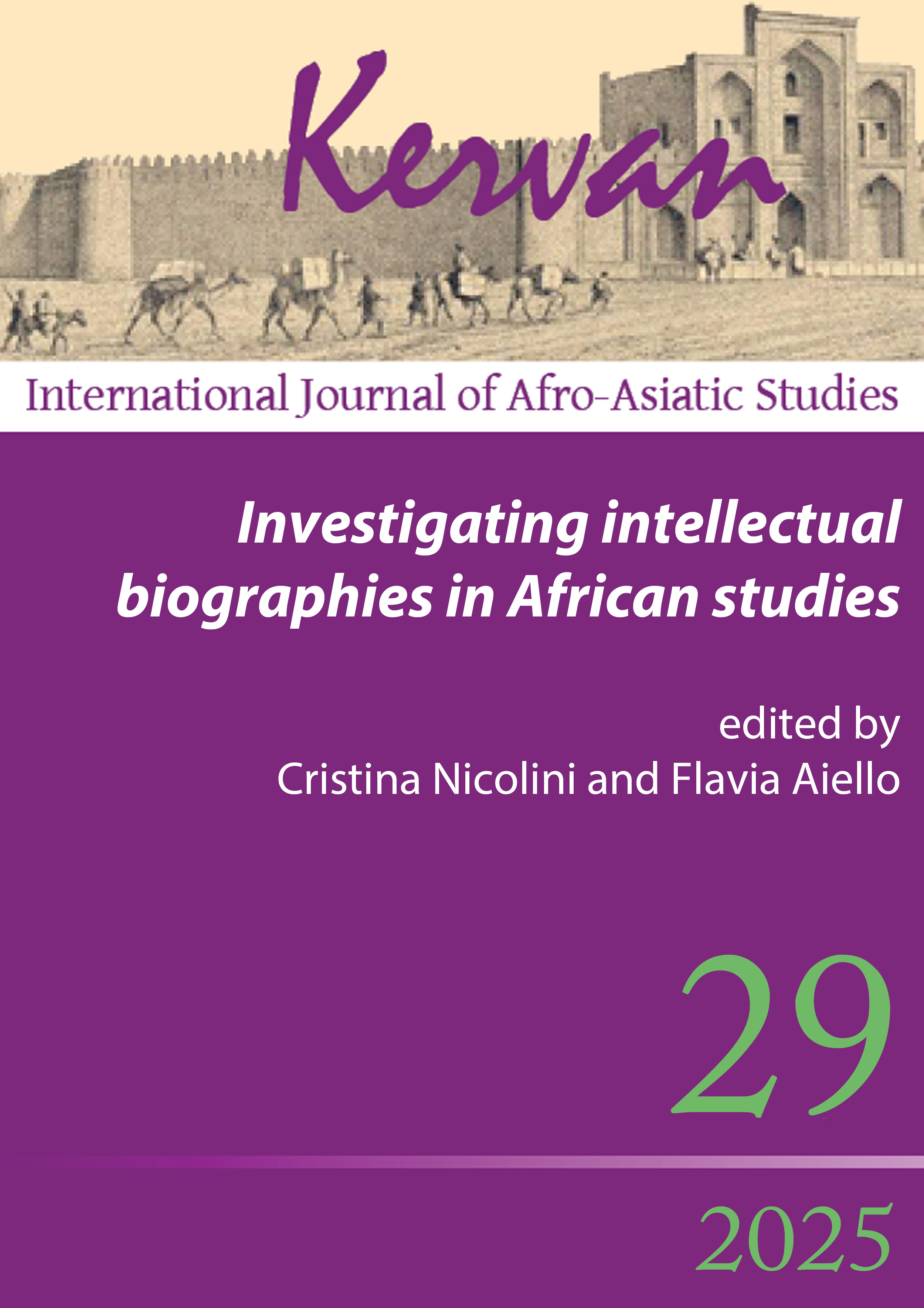From auto/biography to a historiography of post-colonial Tanzania in Swahili popular literature
DOI:
https://doi.org/10.13135/1825-263X/11899Abstract
This article will present two Swahili popular works: the popular novel Mpenzi I-II (‘Lover I-II’,1984; 1985) by Kajubi D. Mukajanga and the collection of short stories Mpe Maneno Yake (‘Give him his words,’ 2006) by Freddy Macha.
Mukajanga started writing the novel in 1982 but the first volume was published in 1984 by his own publishing house, Grand Arts Promotions. The environment he describes is that of J.K.T (Jeshi la Kujenga Taifa /National Service) of Makutupora where the writer describes daily life as he lived it and according to the law in force in 1977.
The second volume of Mpenzi, published in 1985, recounts historically verifiable events as the outbreak of the Second World War; the founding of T.A.N.U (Tanganyika African National Union) with the veiled description of Nyerere; the 1964 uprising that is narrated through the perspective of Mzee Potee’s character, and the failure of the Ujamaa’s policy. The episodes narrated were really lived by him or by people very close to him.
In Macha’s Mpe Maneno Yake the autobiographical elements are prominent, and the short stories reflect the author’s personal perspective and the narrated events are a representation of how they were experienced by the author.
Although the two works were written and published at different times, the first in the mid-1980s and the second in 2006, both authors utilise autobiographical elements and contribute to the biographical representation of post-colonial Tanzania.
Downloads
Downloads
Published
Issue
Section
License
Gli autori che pubblicano su Kervan accettano le seguenti condizioni:
- Gli autori mantengono i diritti sulla loro opera e cedono alla rivista il diritto di prima pubblicazione dell'opera, contemporaneamente licenziata sotto una Licenza Creative Commons - Attribuzione che permette ad altri di condividere l'opera indicando la paternità intellettuale e la prima pubblicazione su questa rivista.
- Gli autori possono aderire ad altri accordi di licenza non esclusiva per la distribuzione della versione dell'opera pubblicata (es. depositarla in un archivio istituzionale o pubblicarla in una monografia), a patto di indicare che la prima pubblicazione è avvenuta su questa rivista.


 The articles that have appeared on Kervan since 2016 are rated as Class A in the system of National Scientific Qualification (ASN, disciplines 10/N1 and 10/N3).
The articles that have appeared on Kervan since 2016 are rated as Class A in the system of National Scientific Qualification (ASN, disciplines 10/N1 and 10/N3). The journal has been approved for inclusion in DOAJ. The DOAJ listing of the journal is available at
The journal has been approved for inclusion in DOAJ. The DOAJ listing of the journal is available at  The journal has been approved for inclusion in ERIH PLUS. The ERIH PLUS listing of the journal is available at
The journal has been approved for inclusion in ERIH PLUS. The ERIH PLUS listing of the journal is available at  Kervan was just accepted for indexing in SCOPUS. This important milestone ensures that articles published in Kervan are easily found when searching for library, archives and Information science and it enables Kervan authors to keep track of how often their article has been cited by others.
Kervan was just accepted for indexing in SCOPUS. This important milestone ensures that articles published in Kervan are easily found when searching for library, archives and Information science and it enables Kervan authors to keep track of how often their article has been cited by others.
